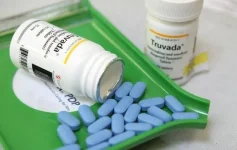When the United States stops helping HIV/AIDS patients, Malawi will face big problems. Our country has always needed outside money for healthcare, especially in fighting HIV/AIDS. UNAIDS leader Winnie Byanyima warned on March 24, 2025, that HIV would rise again worldwide. She said people might die like they did years ago. Her words made me remember losing friends and family to this disease back then. People became skinny from what locals called "kawondewonde" during the 1990s and 2000s. Free medicine later stopped many deaths.
Malawi will likely see more HIV infections because prevention programs will shrink. Many patients might lose access to life-saving drugs, causing more sickness and death. Our public hospitals could become overcrowded with sick people but have fewer resources to help them. The money shortage might reduce public education campaigns, making people judge HIV patients harshly again. Healthcare workers could lose jobs when funding ends, making poverty worse for their families. Some Malawians already report losing work because American money stopped coming.
Children affected by HIV/AIDS might lose important support services, leaving them more vulnerable. Research for new treatments and prevention methods could slow down without proper funding. Families will carry heavier financial and emotional burdens caring for sick relatives without help. The government might struggle to track the disease properly, making smart responses harder. All these problems together mean more deaths among HIV-positive Malawians.
The Malawi government must quickly find new donors, organizations, and businesses to replace American funding. This crisis demands fast action beyond politics to prevent deaths. Our health ministry should strengthen local healthcare systems to handle more patients effectively. They need to build community health programs focused on prevention, education, and patient support. The ministry should start campaigns reducing shame around HIV/AIDS and encouraging testing and treatment for everyone.
Programs supporting children affected by HIV/AIDS must become a priority, including education and healthcare access. Local research projects should develop treatments that work specifically for Malawians. The government should team up with experienced organizations already fighting HIV/AIDS. Health officials must find cheaper medicine options, making treatment possible regardless of patient income. Training more healthcare workers ensures enough qualified professionals remain available across the country.
Creating strong systems to measure program success helps the government adjust plans when needed. Taking these actions can reduce the harm from losing American support. Malawi can still protect people living with HIV/AIDS through careful planning and quick responses to this funding crisis. The government must act decisively to continue supporting those affected by the epidemic despite these new challenges.
Malawi will likely see more HIV infections because prevention programs will shrink. Many patients might lose access to life-saving drugs, causing more sickness and death. Our public hospitals could become overcrowded with sick people but have fewer resources to help them. The money shortage might reduce public education campaigns, making people judge HIV patients harshly again. Healthcare workers could lose jobs when funding ends, making poverty worse for their families. Some Malawians already report losing work because American money stopped coming.
Children affected by HIV/AIDS might lose important support services, leaving them more vulnerable. Research for new treatments and prevention methods could slow down without proper funding. Families will carry heavier financial and emotional burdens caring for sick relatives without help. The government might struggle to track the disease properly, making smart responses harder. All these problems together mean more deaths among HIV-positive Malawians.
The Malawi government must quickly find new donors, organizations, and businesses to replace American funding. This crisis demands fast action beyond politics to prevent deaths. Our health ministry should strengthen local healthcare systems to handle more patients effectively. They need to build community health programs focused on prevention, education, and patient support. The ministry should start campaigns reducing shame around HIV/AIDS and encouraging testing and treatment for everyone.
Programs supporting children affected by HIV/AIDS must become a priority, including education and healthcare access. Local research projects should develop treatments that work specifically for Malawians. The government should team up with experienced organizations already fighting HIV/AIDS. Health officials must find cheaper medicine options, making treatment possible regardless of patient income. Training more healthcare workers ensures enough qualified professionals remain available across the country.
Creating strong systems to measure program success helps the government adjust plans when needed. Taking these actions can reduce the harm from losing American support. Malawi can still protect people living with HIV/AIDS through careful planning and quick responses to this funding crisis. The government must act decisively to continue supporting those affected by the epidemic despite these new challenges.












